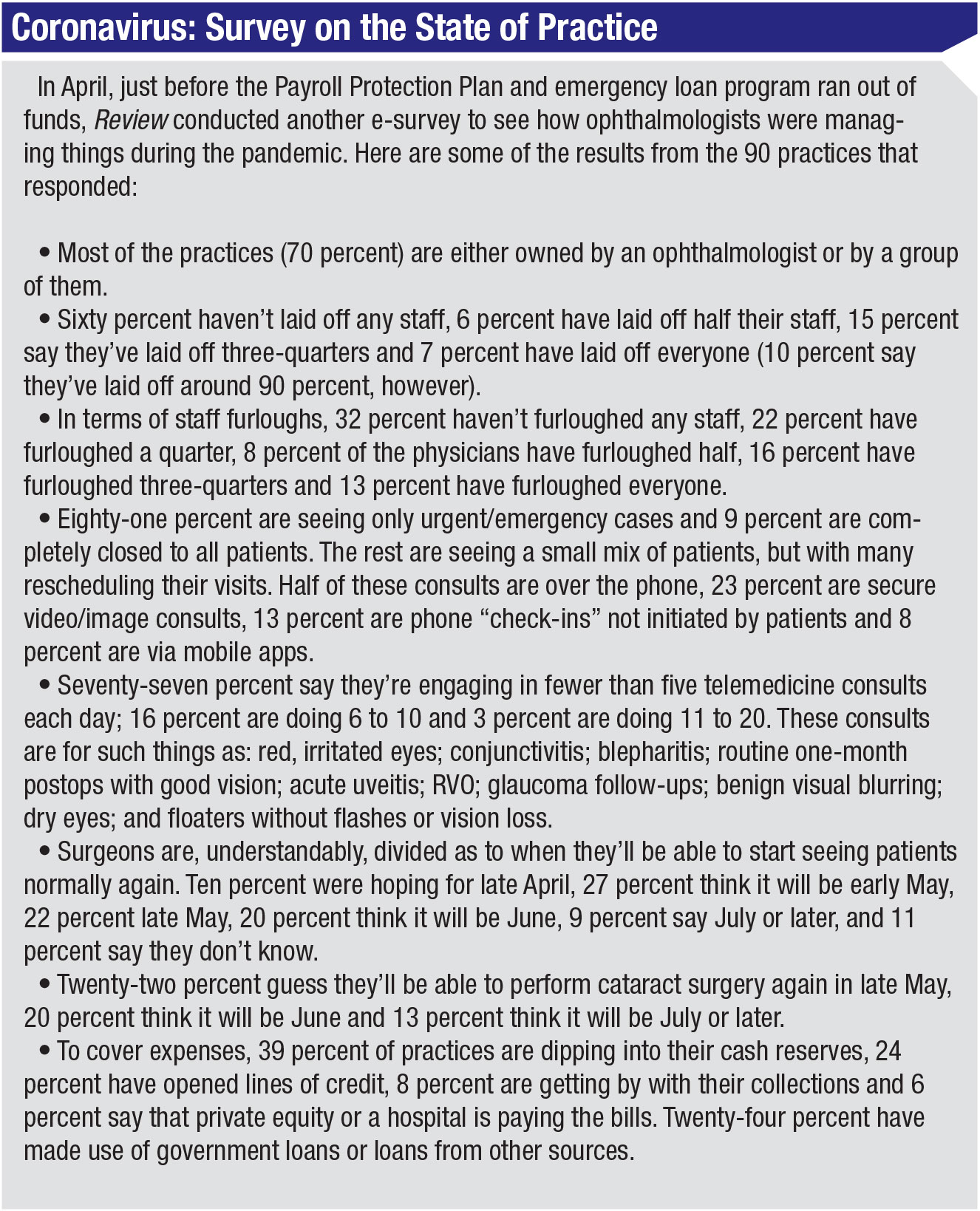Novartis recently completely its comprehensive product quality review of Beovu (brolucizumab), following a warning issued by the American Society of Retinal Specialists about a series of intraocular inflammation events—some of which led to severe vision loss. Throughout the month of March, Novartis conducted a safety review to investigate the adverse post-marketing cases. On April 8, 2020, the company announced its completion of the review, which included an assessment by an external, independent Safety Review Committee.
Novartis concluded that there is a confirmed safety signal of rare adverse events. One of the findings showed that retinal vasculitis, retinal artery occlusion or severe vision loss occurred in 8.75 to 10.08 out of 10,000 injections (between February 28 and March 27).1
 |
The company says it will work with regulatory authorities to revise Beovu’s safety and prescribing information to include these new vision-related side effects. Current clinical trials and Novartis-sponsored studies will receive updated informed consent forms, protocols and investigator brochures.
Vasculitis and severe vision loss on this scale have not been reported with Eylea (Regeneron), Avastin (Roche) or Lucentis (Novartis). Kevin J. Blinder, MD, of the Retina Institute in St. Louis, notes that “the results in the HAWK and HARRIER trials showed very few complications and a good safety profile. Beovu had an inflammatory rate of 4 percent, compared to 1 percent of aflibercept, and artery occlusions were about 1 percent, compared to less than 1 percent with aflibercept. The question is why was the complication rate in the trials lower? We never saw this severe occlusive vasculitis in the trials that we’re seeing out in practice, post-approval.
“In the ASRS Research and Safety in Therapeutics (ReST) Committee case series, published in Retina Times, we had 26 eyes of 25 patients with retinal vasculitis, certainly higher and more severe than anticipated,” continues Dr. Blinder. The Retina Times report2 notes that 88 percent of reported cases occurred in women. None of the patients was treatment-naïve for other anti-VEGF agents and no eyes had a history of anti-VEGF-associated inflammation. One patient had a history of iritis. The study found no identifiable association with lot number. At the most recent follow-up, 13 eyes (50 percent) lost three lines of VA and/or were 20/200 or worse. Similar trends in visual acuity loss were noted in eyes with less than 60-days follow-up.
Dr. Blinder says that the manufacturing process may have played a role, but Novartis has not yet released conclusive findings on manufacturing.
One interesting finding from the trials included a potential immune reaction to Beovu. “In the trials, there was some pre-existing brolucizumab antibody formation in patients who weren’t even injected yet,” Dr. Blinder says. “Antibodies were present in 36 to 52 percent of the treatment-naïve patients. Once they had treatment, that went up to 53 to 67 percent of patients. Perhaps there’s an immune reaction to Beovu that causes these severe complications, but we don’t have any data to show that the ones that had this reaction were antibody-positive.”
Fortunately, Dr. Blinder’s practice hasn’t seen any unusual inflammatory events, but Novartis’ announcement of updated safety and prescribing information and this series of complications with Beovu has changed his utilization and practice patterns. “Retina specialists have to decide for themselves what their comfort levels are for using Beovu and discuss it with their patients,” he says. “The risk may be justifiable in patients who are unresponsive or non-responders to all other treatments.
“Nevertheless, I think Beovu will still have a place in our armamentarium of treatment options for AMD,” he says. “There are still many other ongoing trials with Beovu for other indications, so I think we need to see long-term if the incidence of this complication will go down.”
Dr. Blinder notes that both the ASRS and Novartis have recommended that Beovu not be used in anyone who’s had a history of inflammatory reaction to anti-VEGF therapy. “Bilateral injections are very questionable with Beovu, unless you have an extremely good reason to justify the risk,” he adds. “Also, informed consent with a detailed discussion with the patient is extremely important.”
If you continue to use Beovu, Dr. Blinder says examining the patient prior to every injection is important to detect any signs of intraocular inflammation. “Sometimes we do treatment-only visits for patients and don’t do an examination or office visit. With this drug, it would be a good idea to look each time and check for inflammation in both the anterior and posterior segments. I would hold off on the injection if there are any signs of inflammation.
“It’s really an unusual story,” Dr. Blinder continues. “This drug had outstanding results in the registration trials, with great expectations post-approval. Hopefully, once all is said and done, we can still use it in our day-to-day practices.” REVIEW
1. Gardner J. Eye drug side effects are real, Novartis confirms in new warning. BioPharmaDive. Accessed 22 April 2020. https://www.biopharmadive.com/news/novartis-beovu-safety-fda-eylea-regeneron/575816.
2. Hahn P, Arevalo JF, Blinder KJ, et al. Occlusive retinal vasculitis following intravitreal brolucizumab: An ASRS Research and Safety in Therapeutics (ReST) Committee Report. Retina Times 2020 [Epub]
 |



